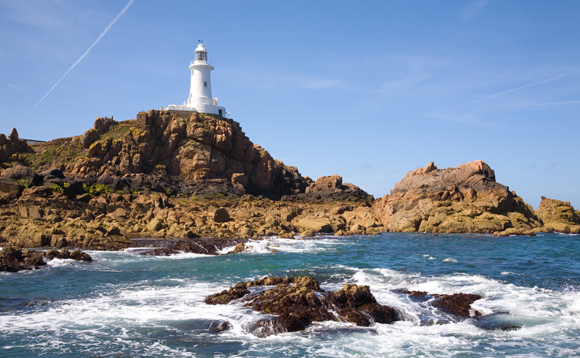
ESMA approves Channel Islands' AIFMD passport

The European Securities and Markets Authority (Esma) recently endorsed Jersey and Guernsey for the AIFMD common passport, highlighting increasing competition for fund domiciles. José Rojo reports
Esma's recent report looks at six non-EU jurisdictions where the AIFMD passport could potentially be granted to: the US, Hong Kong, Singapore, Switzerland, Jersey and Guernsey. All six had their previous track record scrutinised by regulators to make sure no obstacles existed with regards to investor protection and fair competition with local funds.
The group's results were mixed. With regards to the US, Hong Kong and Singapore, Esma advises European authorities to postpone any extension citing incomplete information for those territories' regulatory framework and potential imbalances between EU and non-EU AIFMD passport holders. In contrast, Switzerland is deemed worthy of AIFMD status once it passes new legislation allowing foreign supervisors increased information access in the country.
However, it is Jersey and Guernsey that have been granted regulatory blessings. Esma finds "no significant obstacles" to welcoming both jurisdictions into the AIFMD club, a move greeted by mixed views across the private equity industry. Michael Collins, director of public affairs at European Private Equity & Venture Capital Association, applauded Esma's green light to the Channel Islands in a statement but urged the regulator to reconsider its negative assessment to the US, Hong Kong and Singapore.
"Esma's advice is disappointing though unsurprising," says Tamasin Little, a financial regulation partner at King & Wood Mallesons (KWM) who is far less convinced by the regulator's decision. "The procedure was meant to remove the need to assess equivalence on a country-by-country basis, yet that is what has ended up happening. What I find most disheartening is the failure to grant passporting rights to fund managers in the European Economic Area (EEA) who manage non-EEA vehicles," she says.
Jersey offshore
Unsurprisingly, the mood is buoyant in Jersey and its £227bn-strong fund industry. Esma's advice follows reports that hedge and real estate funds domiciled in the island grew in value by a respective 46% and 32% year-on-year, followed by a modest 5% increase among private equity funds. These currently represent a fifth of all funds registered in the jurisdiction and the sector looks set to boost the ratio, according to Geoff Cook, CEO at local industry body Jersey Finance. "We have seen a strong uptick in private equity entities listing in Jersey over recent months, even ahead of the Esma announcement," he says.
The influx of private equity vehicles to the islands comes as the larger, onshore European countries endeavour to retain them. After AIFMD's arrival in 2011, competition has intensified in the EU as countries look to adapt their existing LP structures to the new common framework.
In November 2014, unquote" reported on the Netherlands' emergence as a fund base as neighbouring Luxembourg struggled under the LuxLeaks scandal to keep its traditionally strong position. However, the Grand Duchy has since regained lost ground after tax uncertainties were dealt with by regulators. In April, local players reported a surge in the registrations for the société en commandite spéciale (SCSp) fund structure, with an average of 40 vehicles set up every month by an increasingly large and diverse GP base.
France added its name to the list in early July, when flexible, fiscally transparent société de libre partenariat (SLP) received parliamentary go-ahead amid hopes of luring foreign LPs. Latest to join the race have been UK policymakers, keen on upgrading LP regulation that has seen little change over the past century.
"Not a game changer"
Given the above, what implications could a potential admittance of the Channel Islands have for an already crowded AIFMD landscape? KWM's Little remains sceptical. "," she says. "But it is not a game changer, just a valuable additional opt-in alternative. These jurisdictions have long been popular due to offshore tax status and that will remain."
When asked to identify the strongest contenders in the fund-setting competition, Little highlights Luxembourg's efforts in keeping its appeal intact among private equity vehicles. Fund managers, she adds, would also be wise to keep an eye on unusual jurisdictions like Cyprus, where work to update existing regulation is currently underway.
However, Little warns increasingly competitive fund structures across EU states do not necessarily correlate with healthier fundraising: "I'm not sure that the fund scene needed reviving – nor that a fight between domiciles would revive it if it did. To my mind, fundraising does not depend on domiciling terms being more competitive but on the broader economy, investment opportunities, track record and investors wanting to invest."
Latest News
Stonehage Fleming raises USD 130m for largest fund to date, eyes 2024 programme
Sponsor acquired the public software group in July 2017 via the same-year vintage Partners Group Global Value 2017
Stonehage Fleming raises USD 130m for largest fund to date, eyes 2024 programme
Czech Republic-headquartered family office is targeting DACH and CEE region deals
Stonehage Fleming raises USD 130m for largest fund to date, eyes 2024 programme
Ex-Rocket Internet leader Bettina Curtze joins Swiss VC firm as partner and CFO
Stonehage Fleming raises USD 130m for largest fund to date, eyes 2024 programme
Estonia-registered VC could bolster LP base with fresh capital from funds-of-funds or pension funds









